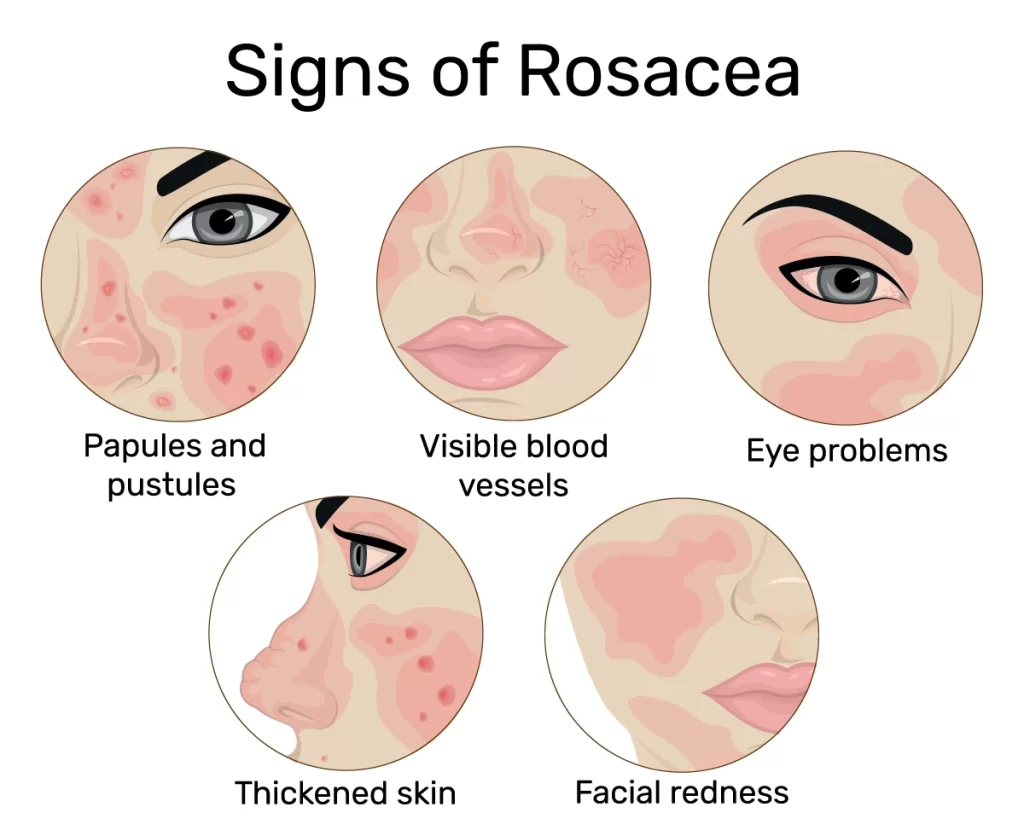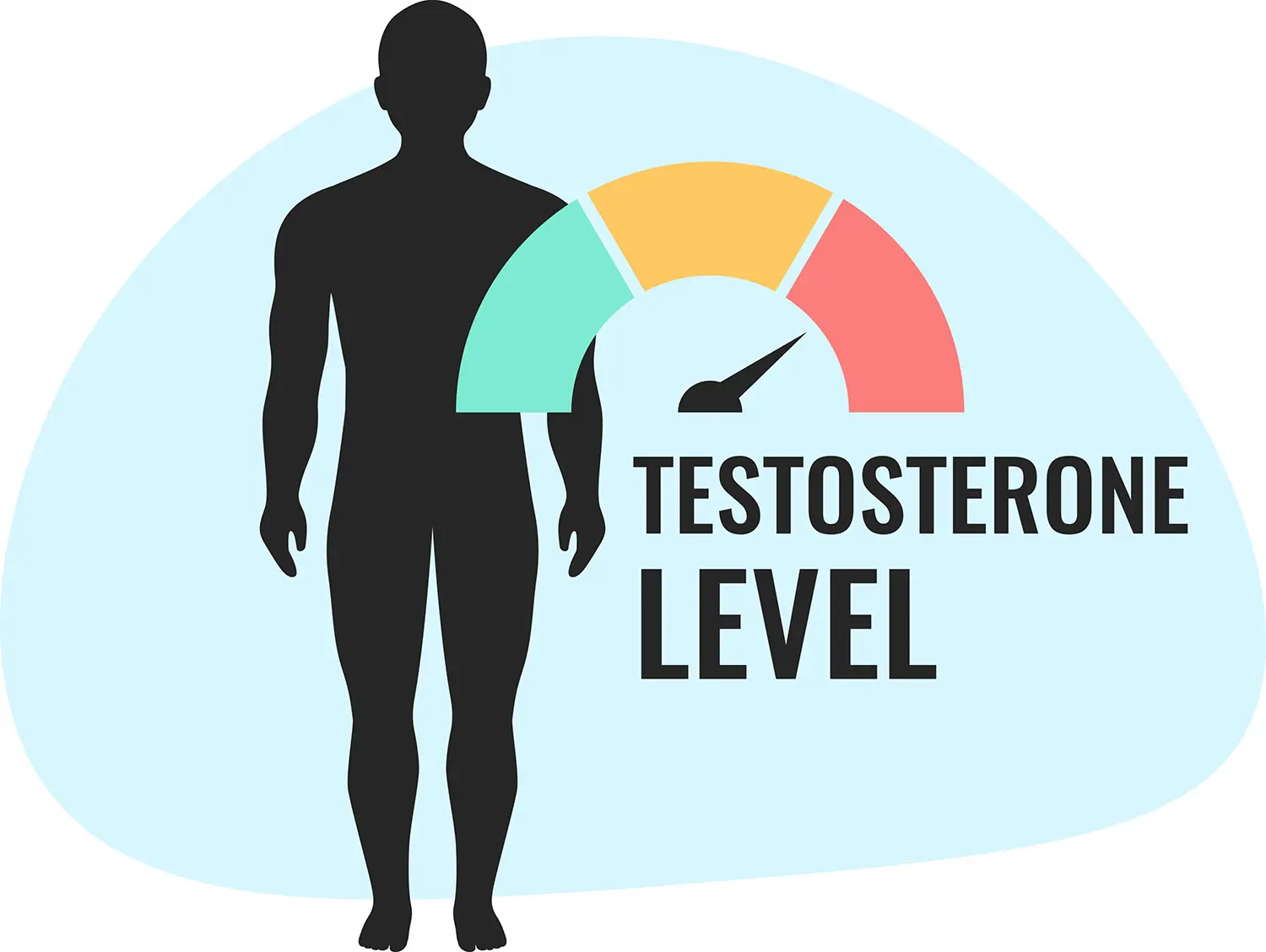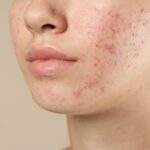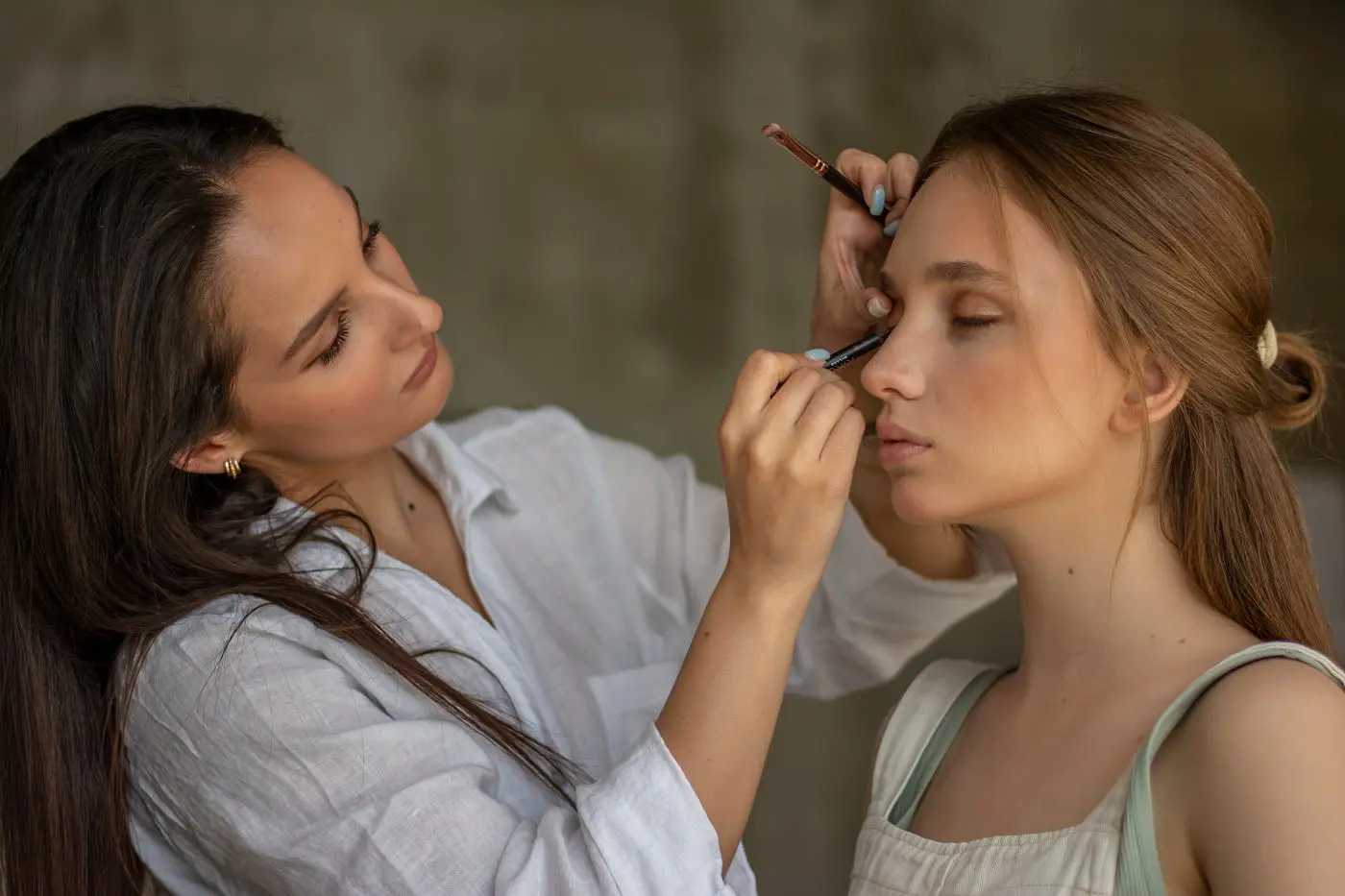Yes, Accutane for rosacea can be a valuable option to reduce redness, swelling, and acne-like bumps when other treatments do not help. The medicine, called isotretinoin, reduces oil in the skin and shrinks the glands, which helps calm irritation.
In low doses, it can help alleviate redness and papules without significant side effects. When guided by a dermatologist, this treatment can bring long-term control and fewer flare-ups.
Rosacea is a common skin condition that causes redness, bumps, and irritation, often resembling acne. At DermOnDemand, Dr. Alicia Atkins and her team of board-certified dermatologists offer trusted and simple treatment plans for patients with rosacea.
This guide explains how isotretinoin, known by the brand name Accutane, can be used safely and effectively to treat rosacea under the guidance of a healthcare professional.
Key Takeaways
- Accutane, also known as isotretinoin, can help reduce redness, bumps, and flare-ups in patients with rosacea who do not respond to topical or antibiotic treatments.
- Low-dose isotretinoin works by shrinking sebaceous glands, lowering oil production, and calming inflammation that worsens papulopustular rosacea.
- Dermatologists often recommend small, carefully monitored doses to achieve long-term control with fewer side effects.
- Most patients experience clearer, smoother skin within a few months, especially when combined with gentle skincare and sun protection.
- Under the care of Dr. Alicia Atkins and the DermOnDemand team, patients can safely initiate a personalized rosacea treatment plan online in under 24 hours.
How Accutane Treats Rosacea
Does Accutane Help with Rosacea?
Accutane can help individuals who do not respond to topical creams or oral antibiotics for the treatment of rosacea. It reduces the size of the sebaceous glands and lowers the oil that feeds bacteria and inflammation.
Studies show that low-dose isotretinoin for rosacea can make the skin smoother and calmer in mild to moderate cases. Many patients see fewer bumps and less redness after several weeks.
How Isotretinoin Reduces Inflammation and Oil Production
Isotretinoin reduces inflammation and oil by shrinking the sebaceous glands and slowing down oil production, making it especially helpful for those struggling with acne and oily skin.
It also helps to renew the skin and prevent pores from becoming clogged. This effect lowers irritation and helps papulopustular rosacea heal over time. The anti-inflammatory action supports the skin barrier, helping it stay strong and healthy.
Accutane for Rosacea Acne and Flare-Ups
Rosacea and acne vulgaris are distinct conditions, but both can cause bumps and irritation. Accutane for rosacea acne reduces oil and swelling, helping prevent new flare-ups. It can be effective for treating papules, pustules, and thickened skin.
Doctors usually use lower doses than those for acne vulgaris to minimize the risk of adverse effects.
Redness and Rosacea Types

Accutane for Rosacea Redness – Results and Expectations
Does Accutane help with rosacea redness? Research and systematic review findings indicate that it can help alleviate redness when inflammation is the primary cause. Results take time to develop and improve gradually as the skin heals.
For blood vessel redness, additional options such as laser therapy or gentle skin care may help, in conjunction with isotretinoin.
Accutane for Rosacea Type 1 vs. Type 2
Rosacea type 1 primarily causes redness and visible blood vessels, while type 2 causes bumps and pustules. Accutane for rosacea type 2 often shows better results because it targets inflammation.
Type 1 patients can still experience smoother skin and fewer flare-ups, but redness may require more targeted care from a dermatologist.
Can Accutane Cause Rosacea-Like Reactions?
In rare cases, high doses of isotretinoin can exacerbate redness or mimic the appearance of rosacea. This typically occurs when the dose of isotretinoin is too high or the follow-up care is not administered correctly.
With proper medical care, these reactions are uncommon. Regular checkups enable doctors to adjust treatment early and prevent potential side effects.
Dosage and Treatment Timeline
Recommended Isotretinoin Rosacea Dosage
Doctors usually recommend a low-dose isotretinoin plan between 0.1 mg and 0.3 mg per kg per day. This small amount helps reduce oil and inflammation without overdrying the skin. Each plan is tailored to meet the patient’s specific needs and progress. Regular follow-ups help keep the dose safe and effective.
How Long Does Accutane Take to Clear Rosacea
Most patients with rosacea see better skin within 1 to 2 months. The best results can take several months of steady treatment. Since rosacea is a long-term skin condition, some patients need follow-up plans to maintain progress. With good guidance, results often last for the long term.
Adjusting Low-Dose Regimens Safely
Low doses of isotretinoin make treatment easier to manage. If dryness or irritation happens, the dose can be lowered or spaced out. Adding gentle skin care, like moisturizers and sunscreen, helps the skin stay soft and balanced.
For better results, follow a dermatologist-recommended skin care routine for rosacea. These small changes allow steady progress without strong reactions.
Side Effects and Safety
Common Isotretinoin Side Effects
Even at low doses, isotretinoin side effects can include dry lips, dry eyes, or nose irritation. These mild side effects improve with hydrating skin care. Rare adverse effects include joint pain or changes in mood. The most significant risk is congenital disabilities, so it should never be used during pregnancy.
Medical Supervision and Dermatologist Follow-Up
Patients taking Accutane for rosacea require regular visits to a dermatologist. Dr. Atkins and her team review lab results and skin conditions to ensure the plan is safe and effective. They adjust the dose if needed and monitor for any side effects. This level of follow-up helps patients stay safe and confident during treatment.
Candidacy and Alternative Treatments
Who Should Take Accutane for Rosacea
Accutane is often prescribed for adults with papulopustular rosacea who do not respond to other options. It is effective for patients with rosacea who have active oil glands or recurrent flare-ups. People should share their health history before starting any medication to lower the risk of adverse reactions or medication interactions.
Accutane vs. Other Rosacea Medications
Accutane can offer stronger and longer results than topical treatments or oral antibiotics. While antibiotics lower inflammation for a short time, Accutane can give long-term control. Some dermatologists combining it with anti-inflammatory skin care to maintain results. This mix helps protect the skin and prevent new flare-ups from occurring.
Getting Dermatologist Care Online
Personalized Isotretinoin Plan from Home
With DermOnDemand, patients can complete a secure form and receive a personalized rosacea treatment plan in under a day. This online process eliminates waiting rooms and provides access to expert dermatologists, such as Dr. Atkins.
Each plan is tailored to the patient’s specific needs, skin condition, and daily routine. It’s safe, fast, and simple to follow.
Fast Prescription Access Within 24 Hours
After review, prescriptions are sent directly to the patient’s home. This makes treatment easy and private while keeping intense medical supervision. Patients can begin treatment promptly and receive follow-up guidance online. This approach supports both convenience and professional care simultaneously.
FAQs About Accutane for Rosacea
Yes, Accutane can help control redness, bumps, and swelling associated with rosacea. It reduces oil and inflammation, which improves the skin’s appearance and texture. It’s not a complete cure, but it gives many patients lasting relief from rosacea symptoms.
Standard rosacea treatment options include isotretinoin, azelaic acid, or low-dose doxycycline. The best choice depends on the severity of the condition and the patient’s specific needs. Isotretinoin is effective for individuals who continue to experience papules and pustules despite trying other treatments.
Yes, when taken in small doses under a dermatologist’s care, Accutane for rosacea redness is safe. It lowers inflammation and improves the skin barrier. With close follow-up, patients can avoid side effects and maintain steady results.
Ready to get clearer, calmer skin?
Start your personalized rosacea treatment with DermOnDemand today and receive a dermatologist-approved Accutane plan tailored to your skin, all from the comfort of your own home, in under 24 hours.








